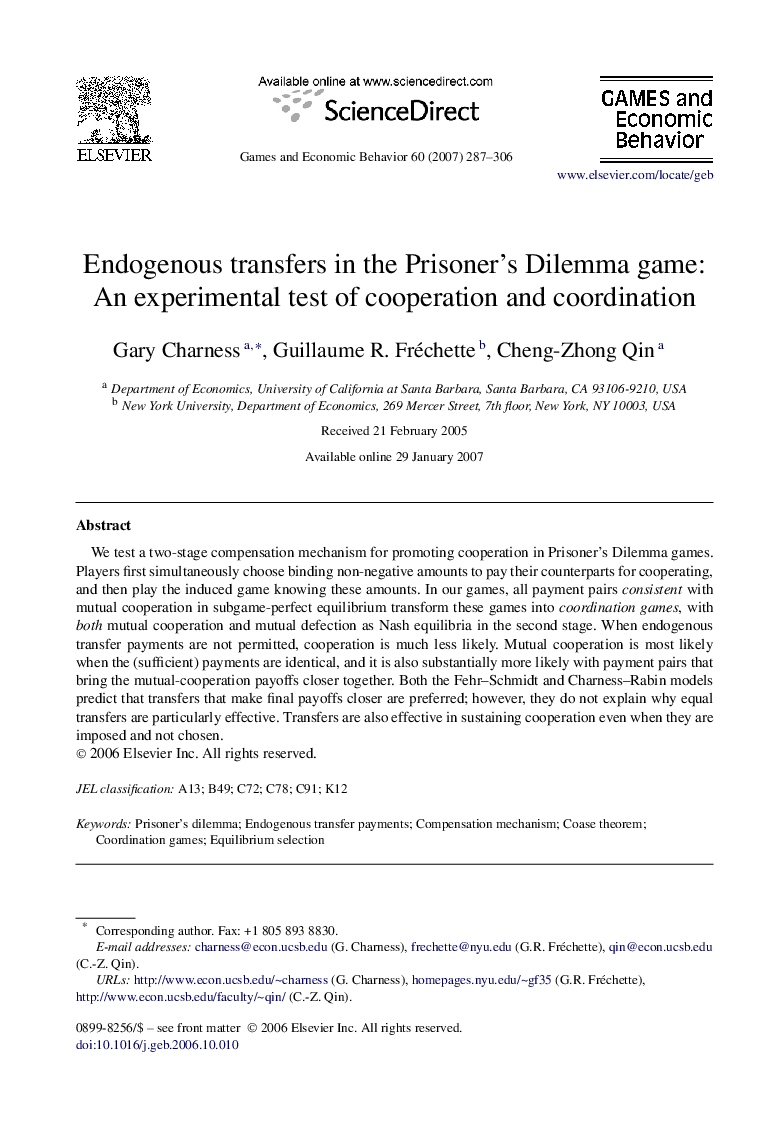| Article ID | Journal | Published Year | Pages | File Type |
|---|---|---|---|---|
| 5072806 | Games and Economic Behavior | 2007 | 20 Pages |
We test a two-stage compensation mechanism for promoting cooperation in Prisoner's Dilemma games. Players first simultaneously choose binding non-negative amounts to pay their counterparts for cooperating, and then play the induced game knowing these amounts. In our games, all payment pairs consistent with mutual cooperation in subgame-perfect equilibrium transform these games into coordination games, with both mutual cooperation and mutual defection as Nash equilibria in the second stage. When endogenous transfer payments are not permitted, cooperation is much less likely. Mutual cooperation is most likely when the (sufficient) payments are identical, and it is also substantially more likely with payment pairs that bring the mutual-cooperation payoffs closer together. Both the Fehr-Schmidt and Charness-Rabin models predict that transfers that make final payoffs closer are preferred; however, they do not explain why equal transfers are particularly effective. Transfers are also effective in sustaining cooperation even when they are imposed and not chosen.
